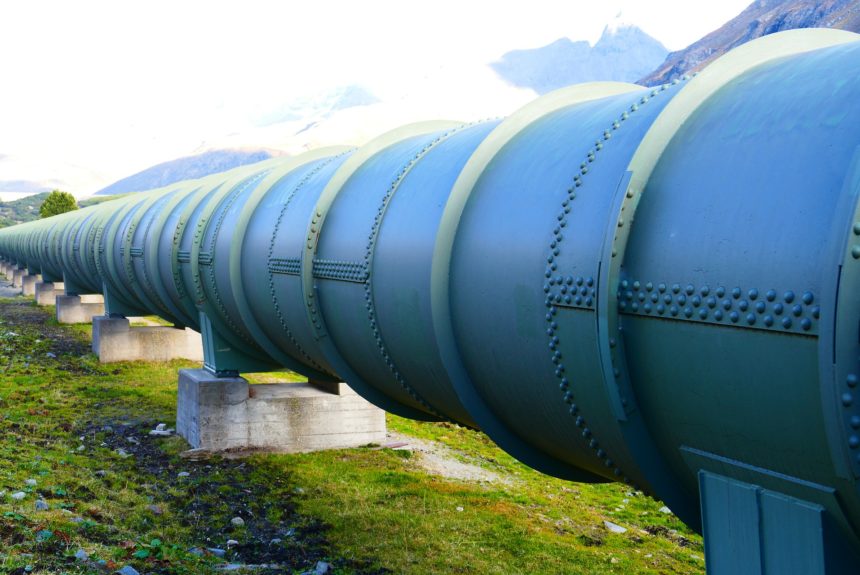With the passage of The Lower Energy Costs Act (HR1) earlier this year, the House of Representatives prioritized the importance of affordable and reliable energy for American families and businesses. Some legislative “wins” have been achieved so far this year, but much more is necessary.
Policymakers on both sides continue to push for additional reforms to allow for efficient energy infrastructure permitting. While improving the National Environmental Policy Act has drawn the most attention in Washington (including fixing excessive litigation), one overlooked policy could help natural gas customers across the country. Policymakers should amend Section 5 of the Natural Gas Act (NGA) to grant the Federal Energy Regulatory Commission (FERC) the authority to issue refunds to interstate natural gas transportation customers who were charged unjust and unreasonable rates. That may sound complicated, but a simple legislative fix will allow natural gas customers to get energy more affordably. Because of the impact this policy change will have on consumer energy rates, it should be important to everyone.
>>>READ: Fossil Fuels Can Coexist With Climate Goals
Here’s a little more background. The NGA authorizes FERC to set the rates interstate pipeline companies charge gas utilities and other purchasers when procuring natural gas from other states. The NGA is intended to be a parallel statute to the Federal Power Act (FPA), which lays out the process for electric utilities and others. Both laws outline a process to deal with over-collections of transportation costs, also referred to as overcharges. Specifically, these are instances when entities that transport gas or electricity over interstate pipelines or transmission lines charge customers an unfair rate. Under section 206 of the FPA, FERC or an interstate electric transmission customer can file a rate complaint. If FERC finds that an electric transmission entity has charged an “unjust and unreasonable” rate, the FPA authorizes FERC to order that the entity refund over-collections from the time the complaint was filed.
Unfortunately, the Natural Gas Act currently offers no such protection for natural gas utilities. Under Section 5 of the NGA, interstate natural gas transportation customers can file a complaint, but FERC, if it has determined an overcharge has occurred, does not have the authority to order a refund from the date of the complaint filing. As FERC cannot grant refunds from the date the complaint was filed, there is no incentive for the interstate pipelines to wrap up Section 5 rate cases, allowing overcharges to build for years. The natural gas user is left with an unjust and unreasonable rate and no recourse for overcharges. Reforming Section 5 will align the NGA and FPA and ensure both these statutes function as intended, giving FERC the appropriate refund authority to remedy overcharges. The American energy consumer will benefit from a government seeking to ensure just and reasonable rates.
>>>READ: Legislation to Expand Pipeline Infrastructure Could be Critical to American Energy Security
In both the 116th and 117th sessions of Congress, bipartisan legislation was introduced to reform Section 5 of the Natural Gas Act and grant the FERC the same refund authority in its natural gas pipeline rate cases that it already has in electric transmission rate cases under the FPA. After a hearing with the FERC Commissioners earlier this year, a question for the record was submitted by Cindy Hyde-Smith (R-MS) of the Senate Energy and Natural Resources Committee. Responding to whether Congress should amend Section 5 of the NGA, Chair Willie Phillips provided, “I defer to Congress on whether it should amend the NGA to give the Commission additional authority. I note, however, that if the Commission had that authority, the Commission could better ensure that rates subject to the Commission’s jurisdiction are just and reasonable.”
Congress is right to prioritize reliable, affordable and efficient energy. Natural gas delivers on all three – helping to power American homes and businesses while lowering emissions. At a time when American households have concerns about the high costs of living, amending Section 5 of the NGA to allow for appropriate refund authority will lower energy costs for families and businesses – just as the Lower Energy Costs Act intends to do.
Stuart Saulters is the Vice President of Government Relations for the American Public Gas Association (APGA). APGA represents more than 730 communities across the U.S. that own and operate their retail natural gas distribution entities. These include not-for-profit gas distribution systems owned by municipalities and other local government entities, all accountable to the citizens they serve.
The views and opinions expressed are those of the author’s and do not necessarily reflect the official policy or position of C3.
